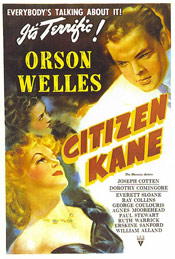
Now, some things were said that just seemed crazy, and make me glad I’m not a reviewer and don’t have to deal with it. One comment I particularly don’t get concerned “conceptual spoilers” where if you reveal a particular concept that the plot deals with instead of actual details. The panel for this podcast was made up of various authors and reviewers, and besides dealing with the etiquette of books, it came up that procedural and mystery fans are terrible to hang out with.
Now I come from a SF/F background as well, so I feel them. The problem, as they point out, is that mystery fans see the twist long before anyone else. You sit down to watch a great movie or interesting TV show, and the mystery fan will have the villain picked out as soon as they slither into view, all smiles and handshakes. Evil twin? No problem, the mystery fan has their number.
The panel goes on to say that the art of a great twist has been lost for the most part in mainstream genre, but is alive and well in short fiction. You can listen to it in detail, but I’m curious about your thoughts. Do you think mystery fans can spot a villain, no matter the medium, before anyone else? Is the art of the plot twist lost? And what about book spoilers, how soon is too soon?

@chris – I do think that we mystery fans can spot a villian before absolutely anyone else. I don’t think we’re horrible to hang out with because most of us keep our mouths shut. Although my own mother says that as a child I would ask her if someone was the villian before she had figured it out. The whole spoiler thing is a tough concept when you are reviewing. I just reviewed a book I didn’t ultimately like because of the ending (because I like the bad guy to get caught). But I couldn’t come out and say I didn’t like the ending and why — because then people would know. It’s an issue.
See, I’ve always felt that I’m an improper judge for spoilers. Mostly because I don’t mind them. I have been known to go to the last two pages of a book that I’m really into just too see if the ending is one I will like. Unless we are talking movies or tv, can’t stand spoilers there. That being said, I’m also notorious for, when asked my thoughts, spoiling the crap out of a plot.
However, if I’m behind on my reading/viewing, I’ll seek out reviews, fully aware that spoilers may be contained within. It’s the price I’m willing to pay to find out if a particular book/movie/tv show is worth my time.
Like I said, I really don’t begrudge you reviewers, it’s like a fine line you guys got to walk.
A lot of times I can guess, but then movies and TV in general tend to like to telegraph what’s coming, so they linger on the insincere smile for example, and crime fans are innately suspicious and prone to obsess over the details. It also means we can be led astray by directorial red herrings, but not too many films or shows are devoted enough to the mystery to preserve a lot of valid alternatives for long. The procedurals feel fine about whipping you back and forth then darting in unusual directions.
But wait, the victim of the too-ordinary drunk driver was actually a venemous snake rancher who claimed to be an alien abductee…
I think they’re right about short fiction in crime being even twistier. Writers have even less room to “play fair” and use shorts a lot to experiment with different forms than whodunit, howdunit, and willtheymakeitoutalive.